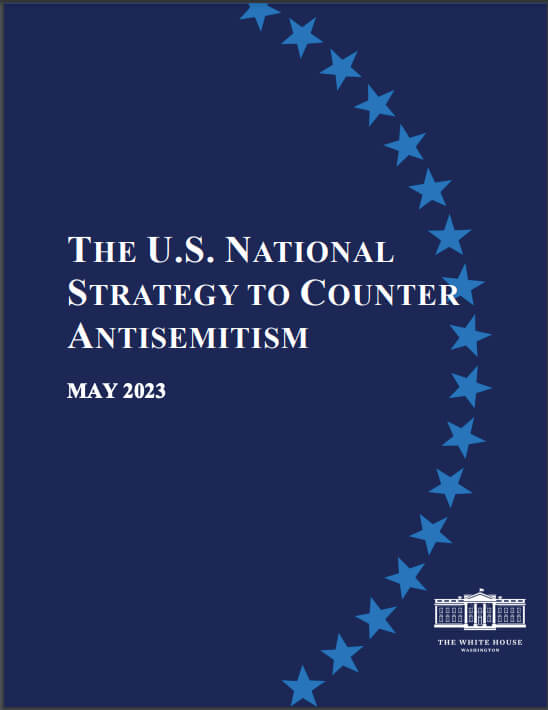Scholars and activists associated with The Third Narrative have debated and in some instances helped shape the three best-known documents that define antisemitism. This TTN post compares the three directly. This Forward article discusses how the Biden administration finessed the political controversies invested in the three as competing documents, with only the IHRA working definition and the Nexus Document mentioned by name, and the third (the Jerusalem Declaration) unmentioned but also not singled out for criticism. This is how the Biden strategy document puts it:
There are several definitions of antisemitism, which serve as valuable tools to raise awareness and increase understanding of antisemitism. The most prominent is the non-legally binding “working definition” of antisemitism adopted in 2016 by the 31-member states of the International Holocaust Remembrance Alliance (IHRA), which the United States has embraced. In addition, the Administration welcomes and appreciates the Nexus Document and notes other such efforts.
Perhaps most important is the very next line: “The focus of this national strategy is on actions to counter antisemitism.” This is described in detail in the 60-page document. For a fact sheet summarizing the strategy, click here. For the full strategy, click here.
More on Those Pesky Definitions
But I can’t resist saying more on those competing definitions of antisemitism. I find none of the three objectionable, but too much ideological firepower has been expended in touting either the IHRA definition or the Jerusalem Declaration against the other, with the former favored or opposed because of its specific references to Israel in seven of eleven situations cited. I am grouping and numbering IHRA’s Israel-related “examples of antisemitism in public life, the media, schools, the workplace, and in the religious sphere … taking into account the overall context,” … :
- Accusing the Jews as a people, or Israel as a state, of inventing or exaggerating the Holocaust.
- Accusing Jewish citizens of being more loyal to Israel, or to the alleged priorities of Jews worldwide, than to the interests of their own nations.
- Denying the Jewish people their right to self-determination, e.g., by claiming that the existence of a State of Israel is a racist endeavor.
- Applying double standards by requiring of it [the State of Israel] a behavior not expected or demanded of any other democratic nation.
- Using the symbols and images associated with classic antisemitism (e.g., claims of Jews killing Jesus or blood libel) to characterize Israel or Israelis.
- Drawing comparisons of contemporary Israeli policy to that of the Nazis.
- Holding Jews collectively responsible for actions of the state of Israel.
I’m mostly fine with these examples, especially since IHRA explicitly advises “taking into account the overall context.” But I do see #3 and 4 as potentially problematic. While I definitely support the right of the Jewish people to “self-determination,” I do not see it as antisemitic for some people to define the Jews as solely a religious group and not a “people” — even though I strongly disagree. This is how classical Reform Jews defined themselves, and the American Council for Judaism still exists as a small organization that follows that line.
As for #4, how does one define “double standards”? If one protests against Israeli policies toward Palestinians or advocates boycotting Israel, is one applying “double standards” for not protesting equally and simultaneously against China’s treatment of the Uighurs or Myanmar’s treatment of the Rohingya? I think not, but one may legitimately complain of a double standard if Israel is condemned for attempting to defend its population from violent attack — what country wouldn’t? The specifics of how Israel reacts militarily, or with police power, is fair game, however.
It’s obvious to me that the IHRA definition should not be “weaponized,” e.g., requiring people applying for government contracts to disavow BDS. I oppose the anti-Israel BDS movement, but Americans have the First Amendment right of free expression to support BDS if that’s their view.
Still, for the most part, I see IHRA as unobjectionable. It pains me that many people who champion the human rights of Palestinians (as I do) don’t understand that for most Jews, having a basic concern for Israel’s wellbeing is a natural part of their identity, as natural as it is for Muslims or other Arabs to sympathize with the plight of Palestinians. Pursuing peace with justice requires that this conflict not problematize people’s identities, and stop being existential for either population.
